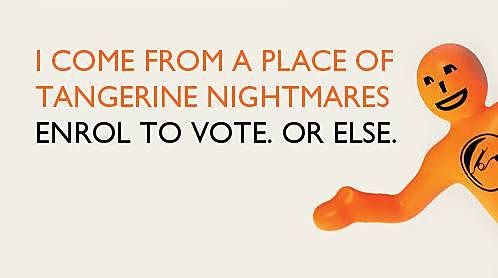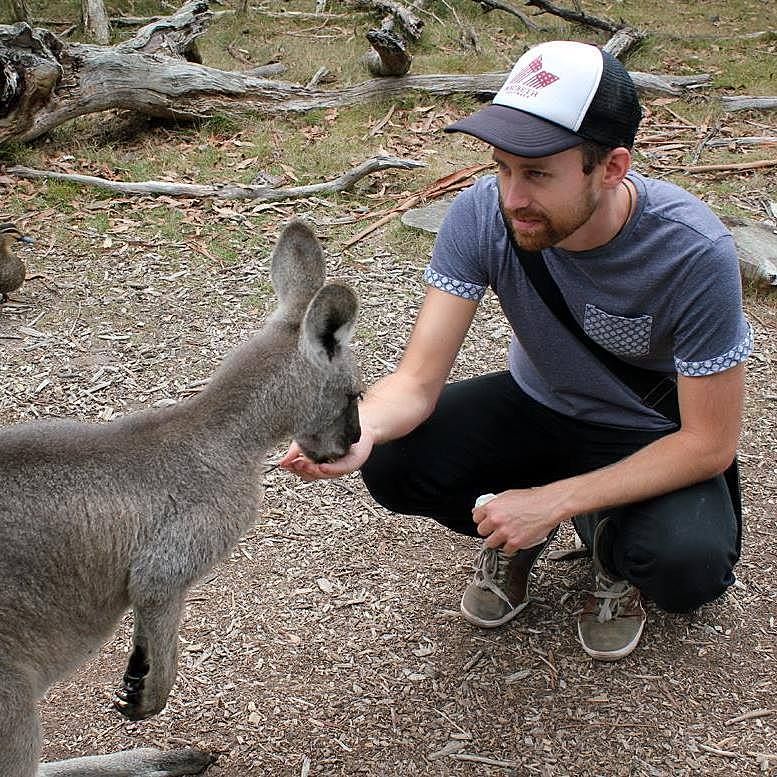IH: Election Roundup Edition
In the first of our new-look Internet Histories, Matt takes a look back at the strangest election campaign in living memory, and how it's been reported online and in the media.
On election day 2011, the biggest question facing New Zealanders was whether posting Facebook support for your party would get you into trouble with the frightening orange blob running the polling booths. National were set to sleepwalk to victory, and they did. Labour were set to lose by their widest-ever margin under MMP, and they did. The results seemed so inevitable they were barely worth voting for, which became a self-fulfilling prophecy. Nine months ago, you’d be forgiven for thinking that tomorrow, the country was going to have to suffer through another Groundhog Day of affected suspense, crocodile tears and cheerful old ladies at polling stations reminding you how to tick boxes. Then an eccentric/criminal German millionaire founded his own political party and the idiomatical shit hit the metaphorical fan, leaving nothing unsplattered as New Zealand’s 2014 General Election was ineluctably tainted by what is anathema to the smooth political operators who usually run things: it got interesting, it got unpredictable, it got weird.
Here at the Punch, we’ve for the most part avoided covering the election (with the exception of Gavin Betram’s excellent series of interviews with the most influential political editors in the country: Gower, Dann, Watkins and Edwards). This is not necessarily because we’ve got nothing to say, but because often we’ve had little to add. Both casual bloggers and professional journalists have at times done an absolutely laudable job of disambiguating the complexities of highly technical fraud/surveillance/copyright issues, and it’s been captivating to watch from across the ditch as the well-oiled campaign engines of several political parties stutter and backfire and come close to derailment.
The issues themselves might be horrifying, the ramifications for our democracy insidious, but – largely, and with some notable exceptions – the links being shared around social media and some of the newspaper stories to come out of this electoral cycle have been clear-eyed and concise.
The first surprise from the Internet Party (excepting the mere fact of its existence) was who Dotcom managed to wrangle: Laila Harre, a former Cabinet Minister with real political cred (just don’t ask her about fatties), was going to take this dude’s money in exchange for a portion of her legitimacy. The best analysis of her decision to lead the Internet Party, as well as the party’s demographic appeal, comes from the Dim-Post; over several entries, Danyl Mclauchlan sketched what I think was a fairly accurate portrait of the Party’s formation, its chances, and how it affects the electoral formula:
And here’s Labour’s big problem: how will they know whether the Internet/Mana party’s [Get Out The Vote] campaign is working? What will winning the votes of a bunch of tertiary students and poor young Maori look like in the polls? How will they know those voters are actually going to turn up and vote until they actually do so?
I don’t think anyone knows the answer to those questions. A lot will depend on the team Harre puts in place, and I note that her first hire has been Pam Corkery as her press secretary. My impression is that that’s a very poor decision and doesn’t point towards the technology-based data-driven political party the Internet Party needs to be to have an impact in the election.
I think we can consider him vindicated on that one.
Everyone thought Internet/Mana were this election’s curveball, and then Nicky Hager crawled out of the woodwork to deliver some #realtalk on how politics actually plays out in this country. Hager’s book was a who’s-who of horse-trading, an index of indictment, though the person most soiled by it was someone who rakes muck for a living anyhow. Still, it spurred some fascinating insights into how New Zealand journalists do their jobs, the best of these coming from David Fisher at the Herald:
The media are just players in the game, and bit players at that.
Looking back, Slater kept journalists like he would have kept hunting dogs - hungry, leashed and fed with morsels until they are ready to be unleashed after whatever game he was hunting.
To Slater, it all part of the game of Dirty Politics. About the time I felt I was being gamed, I decided to have nothing to do with the blogger.
This is how it happened.
The fallout from Dirty Politics seemed to stretch for weeks and spawned a Twitter account, where the person responsible for stealing Slater’s emails posted material on a daily basis. Fisher and his team did an admirable job over that fortnight, sorting and verifying the information that was released, picking out the bits the public might be interested in, packaging them into narratives. It was the sort of full-time work that demonstrated the continued need for intelligent and independent political journalists, and it eventually helped take the scalp of Crusher Collins.
The most remarkable thing happened when Hager released his book, and has been continuing regularly since: the Prime Minister, usually a fairly amiable “look at the end of the day” sort of blokey bloke with dad jokes to burn, turned into a jerk. He called Hager a “screaming left-wing conspiracy theorist,” though Hager’s the most respected investigative journalist in the country, wrote a book that beat up the Labour party in the lead up to the 2002 election, and is the most laconic, anti-hysterical gentleman I’ve ever spoken to. More recently the PM wrote off Pulitzer prize-winning journalist Glenn Greenwald as “Dotcom’s little henchman” and a “loser”. Maybe it’s not so surprising, though – Giovanni Tiso recently re-posted a great read on National’s eradication of Key’s digital footprint from his time prior to becoming leader:
I believe in fact that one of the most convincing clues that Nicky Hager’s theory about the Dirty Politics project is correct is that Key never played the ‘nice’ politician before becoming leader. On the contrary he was, as I have documented, unapologetically nasty – a streak that has come to the fore again in the past weeks and days.
And then! The Auckland Town Hall was rented, and Julian Assange, Glenn Greenwald and Edward Snowden – the Father, the Son and the Holy Ghost of Mass Surveillance – were variously beamed and flown in to reveal, alas! We were being spied on the whole time. Public Address captured both the event and the revelations incredibly well; check out that previous link for Keith Ng doing some excellent de-bullshitifying of Key’s response to the spying allegations, and Russell Brown’s take on the event itself is similarly edifying. The mainstream media are doing their bit too; this take from Andrea Vance is worth a read, especially for the timeline at the very bottom that clearly outlines the GCSB’s involvement.
The exotic nature of 2014’s campaign cycle means it’s difficult to know whether these events will inspire people to go vote for the first time, or whether the allegations and counter-allegations and half-retractions and outright lies will turn people off entirely. Amid everything, it’s nice to read some things haven’t changed; constituents still meet their prospective representatives, still mock them, still applaud them, still care. This election, New Zealand finds itself in an uncomfortable international spotlight, which takes some doing; the fact Eminem is suing the National Party probably helps:
It is both disappointing and sadly ironic that the political party responsible for championing the rights of music publishers in New Zealand by the introduction of the 3 strikes copyright reforms should itself have so little regard for copyright.
The funny thing is, despite all the histrionics, it might not make a damn bit of difference. Middle New Zealanders are still snugly comfortable in the safe hands of Mr. Key, and the Labour Party’s failed to create a powerful enough narrative of competence, relatability and social change for any last-minute turnaround. Cunliffe performed fine in the debates, but fine wasn’t enough. For better or worse, tomorrow night’s excitement is going to take place at the margins, in swinging electorates and minor party headquarters. I’m hosting an election-night party and I’ve already taped Kanye West Explains NZ Politics memes to the doors and walls; regardless of the outcome, at least you can say it’s been an interesting ride.


